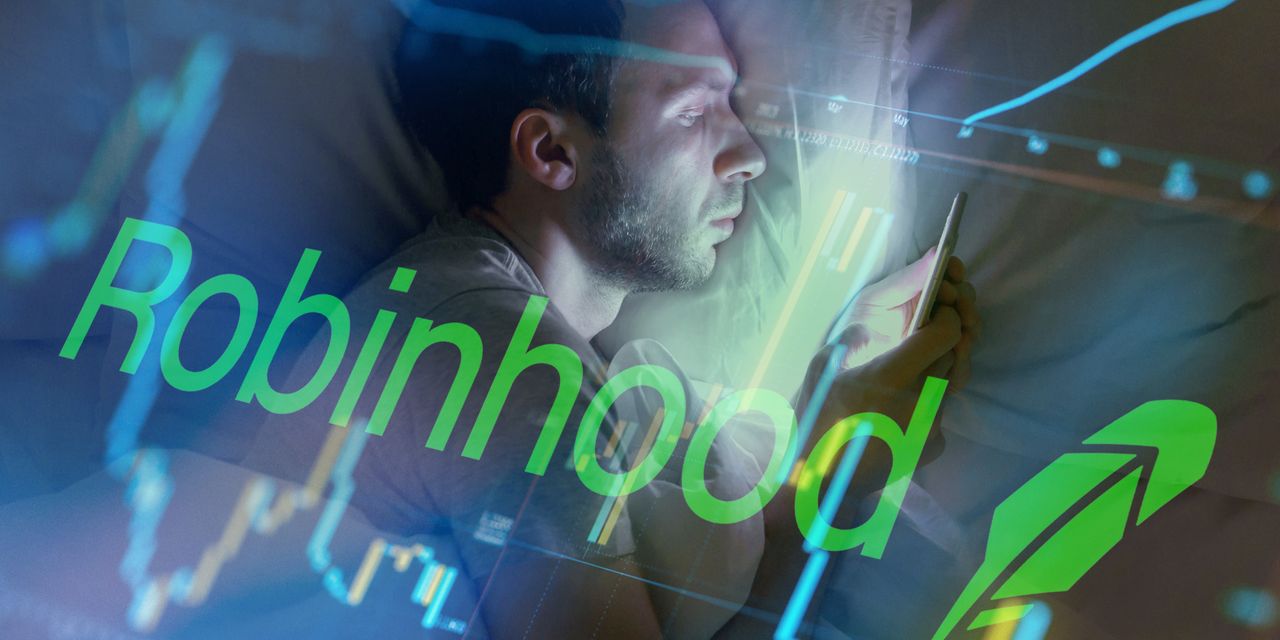Shares of Robinhood Markets Inc.
HOOD,
rose after hours Wednesday after the stock-trading app reported a narrower-than-expected loss and forecast lower expenses, even as active users turn away from the platform amid rising prices and recession fears.
The company, which became a launchpad for last year’s meme-stocks frenzy and then a target for criticism from it, said monthly active users for September came in at 12.2 million, a drop from the prior quarter and down from 18.9 million in the quarter last year, “as customers continued to navigate the volatile market environment.”
The figure, as noted earlier by the Wall Street Journal, was the lowest since 2020. Robinhood closed out that year with 11.7 million users, according to its IPO prospectus.
During Robinhood’s earnings conference call, executives noted some improvements in October. They said assets under custody moved back up to around $70 billion, compared with $64.6 billion at the end of the third quarter.
Chief Executive Vlad Tenev also said that it had taken steps to design more features for its advanced traders, who he said “were on average less satisfied with our service than our other customers” at the beginning of the year. He said the company had since begun offering things like extended trading hours, stock lending and more sophisticated chart data.
“And in the past six months we’ve seen a flip where advanced customers now have higher satisfaction with the Robinhood experience than our other customers,” Tenev said.
For the third quarter, Robinhood reported a net loss of $175 million, or 20 cents a share, compared with $1.32 billion, or $2.06 a share, in the prior-year quarter. Revenue for the quarter landed at $361 million, compared with $365 million in the same quarter last year.
Net cumulative funded accounts — or any accounts into which users put money or other assets — came in at 22.9 million, up from 22.4 million a year ago.
Analysts polled by FactSet expected Robinhood to lose 31 cents a share, on revenue of $362 million. They expected net cumulative funded accounts of 22.95 million.
Operating expenses for the quarter fell to $535 million, down from $1.7 billion in the quarter a year ago. Management forecast full-year operating expenses of $2.34 billion to $2.40 billion. That was a bit lower than the $2.46 billion to $2.60 billion it said it expected in August.
For the full year, FactSet forecast a per-share loss of $1.15, on revenue of $1.37 billion, down from last year.
Shares rose 1.8% after hours on Wednesday.
The company reported the results after a round of steep staff cuts earlier this year, following a meltdown in crypto trading and broader market volatility. A bigger wave of retail-investor enthusiasm in 2020 and 2021 has given way to anxieties over rising prices and a recession.
That enthusiasm drove names like GameStop Corp.
GME,
and AMC Entertainment
AMC,
to atmospheric heights early last year. But Robinhood and other brokers came under fire from traders after they placed trading limits on GameStop and other names.
Robinhood stock is down 36% this year, while the S&P 500 Index
SPX,
is down around 21%.
